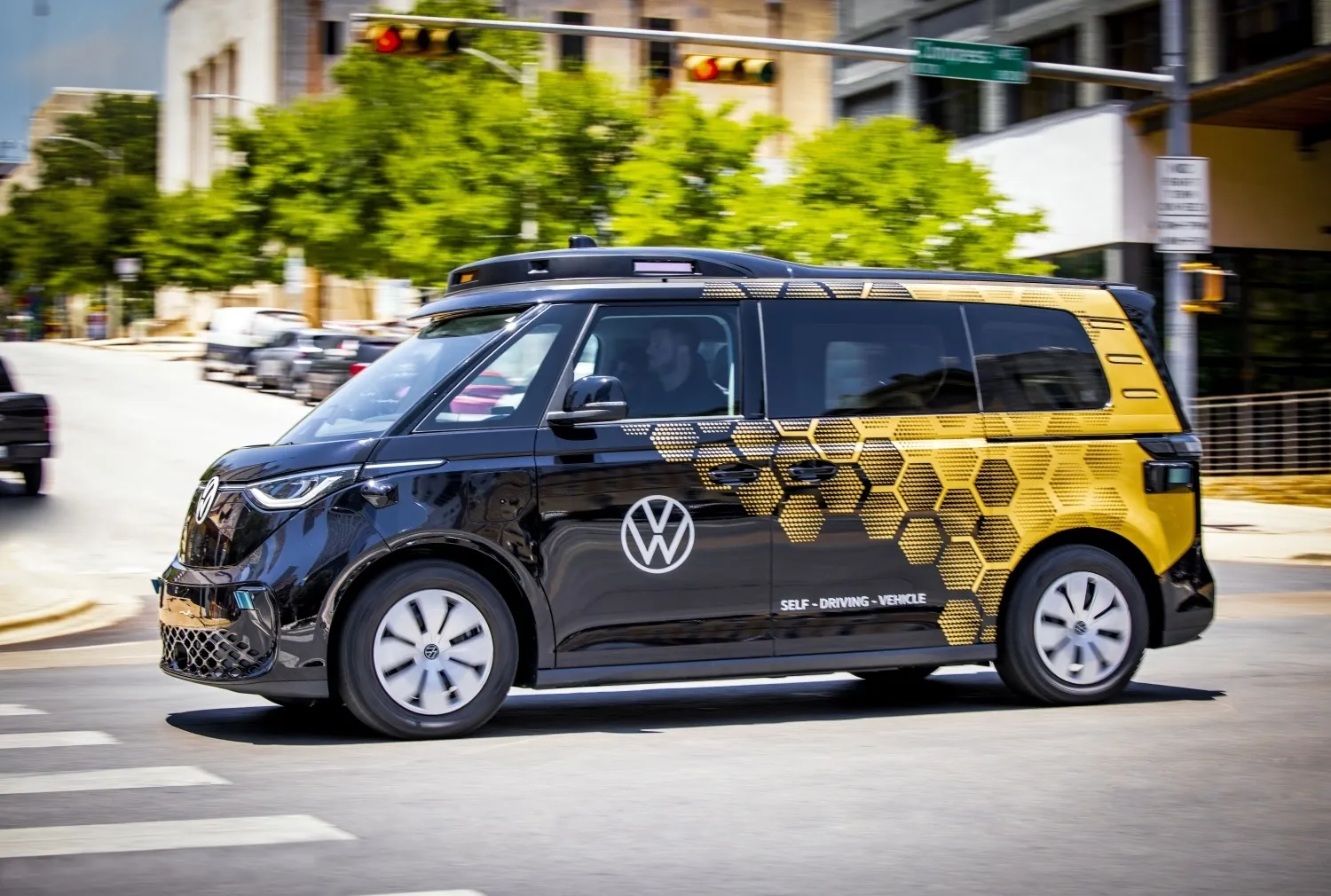
Volkswagen Group of America is launching its first autonomous driving test programme in the US.
Ten electric ID. Buzz vehicles are on the streets of Austin, Texas, this month - the start of a three-year programme which VW says will see the Austin test fleet growing while it plans to "progressively expand testing operations to at least four more American cities".
The vehicles - which will initially have human drivers supervising - are fitted with an autonomous driving tech platform, which includes cameras, radar, and Lidar, developed by the global Volkswagen Group and Mobileye.
The vehicles will collect data through driven miles across "a diversity of driving scenarios", and VW anticipates a commercial launch of AVs in Austin by 2026.
Pablo Di Si, president and CEO of Volkswagen Group of America, called it an "important milestone".
"In the future, we will tap into rising demand for new mobility services," he added. However, the company insists it is not building a dedicated ride-hailing or ride-share service "on its own at this time".
The OEM has established a subsidiary - Volkswagen ADMT (Autonomous Driving Mobility & Transport) - to support the AV roll-out, with teams in Austin and Belmont, California.
VW also says it plans to employ team members who worked with Argo AI and aims to offer fleets of specially-designed ID. Buzz autonomous driving vehicles to "leading companies in the mobility and transportation space, and establish long-term partnerships".
Christian Senger, member of the board of management of VW Commercial Vehicles with responsibility for the development of autonomous driving, says: “Moving into this next phase will help us test, validate and refine technology, bring us closer to establishing commercially available transportation offerings and eventually grow the diverse mobility portfolio for the VW Group.”
Katrin Lohmann, president, Volkswagen ADMT, says Austin was selected for the roll-out because the city "has a track record for embracing innovation and offers a conducive climate for the testing of autonomous vehicles".
The company is committed to continuing "an open and collaborative dialogue with the city and its diverse stakeholders", Lohmann says.










